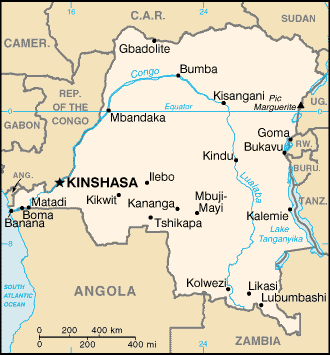More press for the problem of obstetric fistulas in Africa
This article from IPS is from August of 2004, but provides a good synopsis of the problem in the context of Niger, citing a project in the capital city of Niamey that has taken strides toward eliminating obstetric fistula.
A more recent IPS article from last week cites statistics from Burkina Faso, Niger, and Bangladesh, but laments the lack of current data due to lack of attention to this persistent reproductive health problem.
This article cites a 90% success rate of fistula operations, while pointing out that the cost of such an operation is prohibitive for most women who need it, and many cannot even afford transportation to a health service delivery point that offers fistula repair.
A Special Report in this past Sunday's issue (Mar 5) of the Washington Times, Ethiopia's Trail of Tears (registration required), by Betsy Pisik, starts out:
BAHIR DAR, Ethiopia
It is a smelly, offensive and debilitating condition in which women injured in childbirth uncontrollably leak a trail of urine or feces.
The condition, known as fistula, all but disappeared in the Western world in the late 19th century, when Caesarean section births became widely available.
But in sub-Saharan Africa, the condition remains widespread, sentencing as many as 3 million women to a life of abandonment and enforced solitude.
"I thought it was something the doctors did to me, or maybe God," says Bireeh, a young woman racked by incontinence and infection after a three-day labor ended with a stillborn son.
Ms. Pisik visited the Hamlin Fistula Hospital in Addis Ababa, which was started several decades ago by a couple from Australia who were both gynecologists. When they realized what a problem obstetric fistula was, they opened this institution, which is run through charitable donations, which has grown to provide 1,500 women a year with fistula repair.
The documentary that I mention here was done by the BBC over a decade ago and features this hospital. In the film, Dr. Catherine Hamlin expressed concern that the hospital would not be able to continue its work without funding. Today, though her husband has passed, she is still involved in the work that she has done since 1959. The hospital is funded by the Kellogg Foundation and donations spurred on by an appearance by Dr. Hamlin on Oprah, and now has two satellite locations.
You can further explore Dr. Hamlin's efforts at the Hamlin Fistula Relief and Aid Fund.


0 Comments:
Post a Comment
<< Home